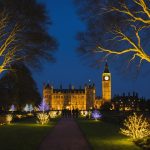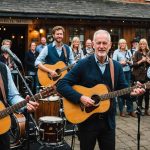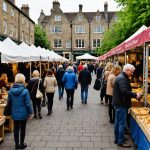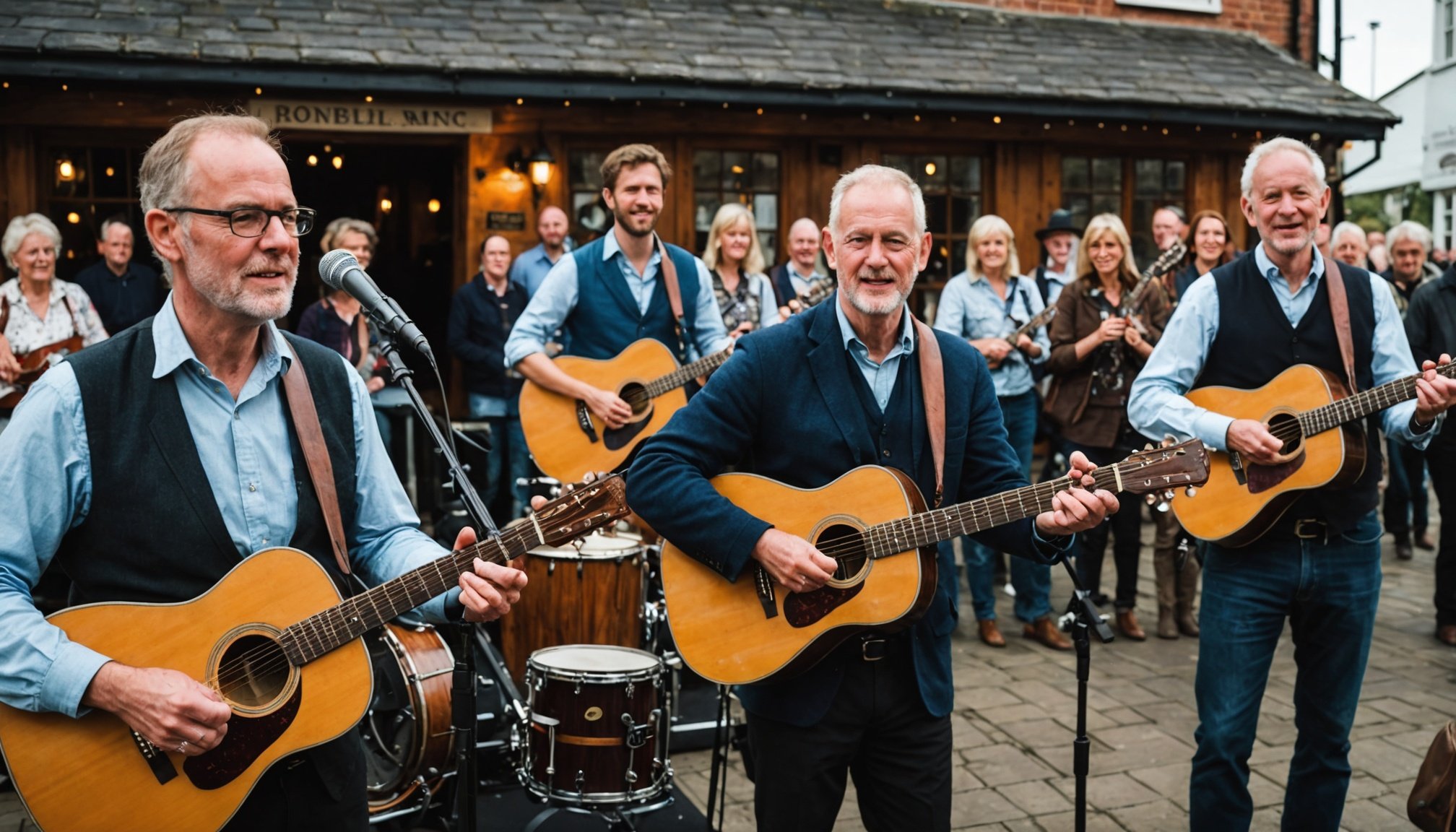Overview of UK Folk Music
The rich tapestry of UK folk music has been a fundamental part of the nation’s cultural heritage for centuries. Its historical significance lies in its role as a storytelling medium, connecting generations through poignant narratives and local folklore. The essence of UK folk music is encapsulated in its simplicity and sincerity, characterised by traditional melodies and instruments such as the fiddle, accordion, and guitar.
Key elements that define UK folk music include its lyrical focus on everyday life experiences, its interactive and communal nature, and its regional variations. For instance, folk traditions in Scotland have a distinctive Celtic influence, while English folk songs often draw from pastoral themes. These variations enrich the overall music culture, making it diverse and representative of the UK’s multi-faceted identity.
Additional reading : Explore the Enchanting Winter Illuminations and Festive Spirit of the UK’s Top Gardens!
Regional variations significantly impact folk traditions, creating a kaleidoscope of styles across the UK. Each region brings a unique flavour to the tradition, which is evident in the different dialects and stories expressed through the music. Understanding these variations is crucial for appreciating the depth and breadth of UK’s folk music culture and its continued evolution in today’s musical landscape.
Top Destinations for Authentic Folk Music Experiences
For those seeking genuine folk music destinations, the UK boasts a myriad of towns and cities, vibrant with musical history and live performances. London, as the bustling capital, plays host to a variety of folk music events, from intimate gatherings in local pubs to renowned concert venues. The city’s musical landscape provides an eclectic mix, appealing to both purists of traditional tunes and enthusiasts of contemporary interpretations.
Also to see : Must-Visit Destinations for Breathtaking Autumn Colors in the Scottish Highlands
Bristol offers a unique blend of history and creativity, pulsing with live performances from local artists that capture the essence of folk traditions. Its music culture is a tapestry of cultural gatherings where music and community converge.
Moving north, Edinburgh stands as a beacon of Scottish folk traditions, with its lively festivals and local community centers. The city’s folk music scene thrives on the stories and experiences passed down through generations, offering visitors an immersive experience into regional characteristics.
Equally captivating are the smaller towns and villages, where authentic folk music experiences can be found. Such locales are often centered around warm, inviting pubs and community events, integral to the music culture that celebrates the roots of UK folk music.
Notable Folk Music Festivals Across the UK
Folk music festivals offer vibrant cultural gatherings that bring together a blend of traditional sounds and community spirit. The Cambridge Folk Festival, a hallmark event, stands out as a beacon for folk enthusiasts. Renowned for its intimate setting, it attracts an eclectic mix of musicians and visitors, offering a perfect balance of regional characteristics and international talent.
Equally notable is the Cropredy Festival, hosted in the charming village associated with Fairport Convention. This annual event radiates a unique sense of nostalgia and innovation, inviting attendees to experience a harmonious blend of the past and the present. Its relaxed ambiance coupled with diverse performances exemplifies the enduring appeal of folk festivals in the UK.
Several lesser-known yet vibrant local festivals provide a more regional flavour. These include the Sidmouth Folk Festival, which celebrates Devon’s folk traditions, and the Orkney Folk Festival, deeply embedded in Scottish culture. Attending these festivals not only supports the folk music culture but also enriches one’s understanding of the UK’s rich folk heritage. Each festival, irrespective of its size, fosters community engagement, strengthening the bonds between music and its audience.
Understanding Different Folk Music Styles
The diverse tapestry of folk music styles across the UK mirrors its rich cultural heritage. Each style is distinguished by unique regional characteristics. The melodious and haunting Celtic tunes of Scotland and Ireland, for instance, often feature the fiddle and the tin whistle. This style is renowned for its emotive storytelling through music.
English folk music is typically more subdued yet deeply resonant with pastoral themes. It employs instruments like the concertina and the harmonium, which lend a distinct sound to the compositions. The narrative focus on rural life and historical events further enriches the style.
Across the Atlantic, American folk also influences UK folk music, introducing elements such as the banjo and the harmonica. This infusion has led to intriguing modern interpretations, blending traditional sounds with contemporary storytelling.
Traditional instruments are pivotal in shaping the folk music sound, providing authenticity and depth. They also act as a bridge, connecting past narratives with present-day expressions. Despite the evolution of styles, these instruments remain integral, preserving the essence of UK folk music. Their continued use speaks to the enduring legacy and adaptability of this timeless music tradition.
Prominent Folk Musicians and Groups to Discover
The UK’s folk music scene owes much of its vibrancy to a rich tapestry of folk musicians and groups who have left indelible marks on the art form. Influential artists have shaped the genre, creating a legacy that continues to inspire new generations. Among the celebrated names is Fairport Convention, renowned for pioneering the British folk rock movement. Their fusion of traditional melodies with modern influences set a precedent for many others.
Emerging talent is an exciting facet of the folk music culture today. Artists such as Sam Lee and The Unthanks are carving out niches with innovative approaches, blending authentic storytelling with contemporary flair. Their fresh contributions ensure that folk music remains dynamic and relevant.
For those eager to delve deeper into local talents, resources abound. Platforms like BBC Radio’s Folk Show and FolkRadio.co.uk offer curated playlists and artist spotlights. By engaging with these outlets, enthusiasts can discover local artists and explore vibrant music scenes beyond well-known stages, adding layers to their appreciation of the UK’s folk traditions. This continual exploration fosters a deeper connection to the thriving community of music performers.
Recommendations for Venues and Gathering Spaces
For enthusiasts seeking authentic folk music venues, several renowned locations stand out across the UK. Traditional listening spaces often merge history and intimacy, offering vibrant live music experiences. Major cities like London provide a plethora of such venues, ranging from historic concert halls to small independent pubs that celebrate traditional sounds. However, the true charm of folk music often lies in the community events held in smaller towns and rural areas.
Local pubs are more than merely gathering spots; they are the lifeblood of many folk music scenes. These enduring spaces host both local artists and touring musicians, creating an atmosphere where stories and songs are shared freely. Additionally, they often serve as platforms for impromptu performances and community engagement.
To uncover lesser-known gems, explore village halls and community centers. These locations are pivotal in preserving folk traditions, often organizing themed nights that bring residents and visitors together. Whether you’re looking for lively concerts or quiet, intimate settings, tapping into local networks and community boards can help locate venues offering authentic folk music experiences. Engaging with these spaces not only enriches one’s appreciation but also supports the vibrant folk music culture.
Resources for Folk Music Enthusiasts
For those passionate about UK folk music, a range of music resources and tools provide opportunities to dive deeper into its captivating world. Enthusiasts seeking to explore or participate in local culture can find comprehensive guides for discovering events and festivals online. Various platforms, such as FolkRadio.co.uk, curate event schedules, ensuring fans never miss a beat.
Additionally, educational materials are invaluable for understanding the rich history and evolution of folk music traditions. Books, documentaries, and online courses provide in-depth insights into the genre’s development, offering context and appreciation for its enduring appeal. Exploring these resources can reveal the diverse regional characteristics that define UK folk music.
Local organizations also play a crucial role in nurturing and promoting folk traditions. These groups frequently host workshops and community gatherings, helping newcomers and aficionados alike connect with the vibrant folk scene. By engaging with these initiatives, enthusiasts can cultivate their interests while supporting the preservation of folk culture.
By leveraging these resources, one can embrace a deeper connection with the historical and cultural tapestry that UK folk music offers, enriching their appreciation and involvement in this enduring tradition.









